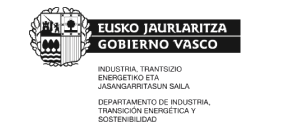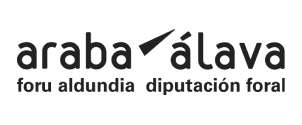30 March 2023

- The European project YouCount aims to generate knowledge on the causes and solutions to youth social inclusion
- It is being developed simultaneously in 9 countries, involving young people in research through social citizen science
- Orkestra and the Social Work area of the University of Deusto are working on the case study of Gipuzkoa with unaccompanied foreign young people
The meeting of the partners of the European project YouCount, including Orkestra and the Social Work area of the University of Deusto, took place in Donostia-San Sebastian on 22 and 23 March. More than 50 young people and professionals from Austria, Denmark, Hungary, Italy, Lithuania, Norway, United Kingdom and Sweden took part in the meeting to share lessons learned and to continue advancing in the research objectives of the project.
The event was opened by the vice-rector of the University of Deusto campus in San Sebastian, Xabier Riezu, and the general director of Orkestra, Mari Jose Aranguren, who highlighted the importance of this project in exploring the transformative role of the university: "YouCount is key for us because it focuses on two aspects that we have been working on for a long time: social inclusion and improving the wellbeing of citizens".
The meetings were also attended by Heidi Ballard, a renowned expert on citizen engagement in scientific research, who leads the Center for Community and Citizen Science at the University of California Davis and is an advisor to the project.
Exploring the potential of social citizen science
In Europe, the number of young people at risk of social exclusion is rising sharply and the need to develop knowledge and innovation to create more inclusive societies is becoming more pressing.
This is precisely one of the main objectives of YouCount: to increase the social inclusion of young people in Europe and to co-create new knowledge about the factors that contribute to their participation in society and their sense of belonging.
All this, through co-creative youth citizen social science, a methodological approach that involves citizens in the research process to jointly generate knowledge, thus bringing science and society closer together.
The case study in Gipuzkoa
Since 2021, Orkestra and the Social Work area of the University of Deusto have been working with a group of young people in Gipuzkoa to gather and understand their views and experiences regarding social inclusion and their opportunities and difficulties in finding work.
These are young people who arrived in Gipuzkoa as unaccompanied foreign minors and who, once they reach adulthood, find themselves outside the territory's protection system and may find themselves in a situation of vulnerability once they acquire the category of 'young person'.
In the project, a group of these people participate as young citizen scientists in a research process. To this end, several sessions have already been held in which the young citizen scientists have learned to collect and analyse daily experiences of exclusion and inclusion in order to make recommendations on strategies for social and labour insertion that can facilitate their transition to adult life.
The Loiola Etxea Association for social reintegration, Zabalduz Kooperatiba Elkartea and the Provincial Council of Gipuzkoa are also collaborating in the project to gain first-hand knowledge of the views of the young participants.
Other vulnerable groups analysed in the project
As in Gipuzkoa, in Naples (Italy) and Austria, research teams are working with young migrants and refugees to study the factors that contribute to their inclusion and participation in society.
However, other case studies focus on other types of vulnerable groups. For example, in Hungary, researchers are working collaboratively with young people with hearing impairment in the city of Szeged. This group faces many challenges in terms of inequality and the project aims to improve their education and employment opportunities.
Information on the other cases is available on the YouCount website: https://www.youcountproject.eu/about-the-project/case-studies












